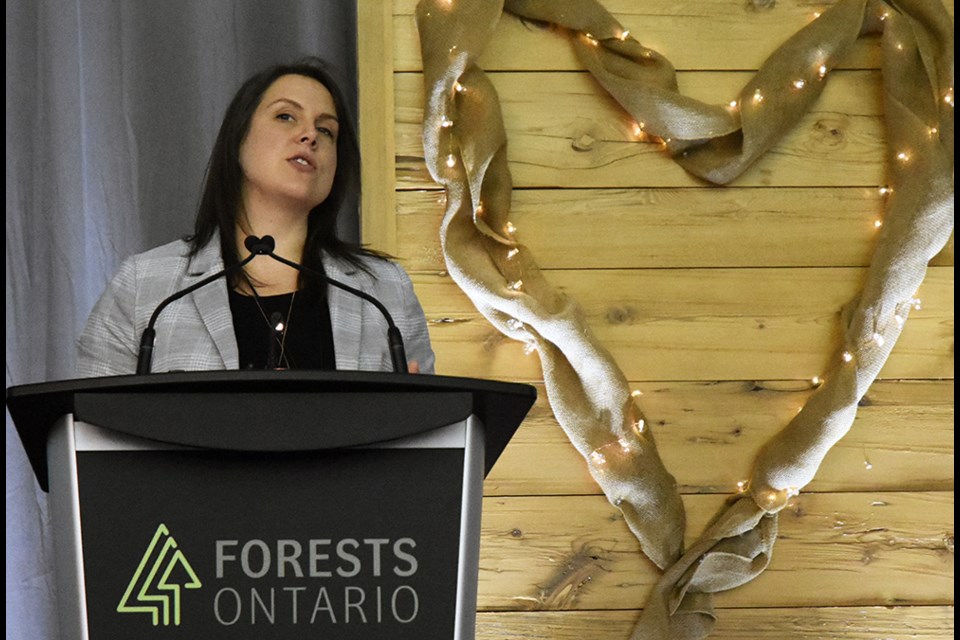There is a solution to the single-use plastic problem, and it’s one that has been right under the noses of policy makers for decades.
It’s paper, said Jessica Kaknevicius.
Kaknevicius is the Vice President of SFI, the Sustainable Forestry Initiative – a partnership of industry, educational institutions and First Nations that uses “forest-focused collaborations” to create sustainability, new initiatives and green jobs.
Forest-based products are renewable, compostable and sustainable, Kaknevicius pointed out, and now is the perfect time, “in a time when we’re trying to look for sustainability,” to look for new solutions and educate the public.
Plastic was at one time hailed as the perfect solution to packaging challenges: lightweight, inexpensive, flexible.
It’s only recently that the scale of the problem created by plastics has become known. According to EarthDay.org, about eight million tonnes of plastic end up in the oceans annually, including microplastics – the tiny fragments of plastic that can enter the food chain.
With growing public concern, Kaknevicius said, “We really believe that forests are the solutions now. Responsible packaging is needed.”
She was one of the speakers the Forests Ontario 2020 Conference, held at the Nottawasaga Inn Resort in Alliston on Feb. 14, talking about a new role for forests in finding solutions to environmental challenges.
Kaknevicius acknowledged that there is a need for a “culture shift” away from the current “disposable” society. She cited a recent survey in the U.S. that showed its citizens were as aware of the issue of plastic pollution in the oceans as they were of climate change – and far more concerned. Sixty-five percent of respondents said they were worried about single use plastics; only 58 percent were concerned about climate change.
And single use plastics topped the list of major issues that people felt they could impact.
Kaknevicius noted that the Canadian government plans to ban single use plastics by 2021. “We can help the government get to that point,” she told the audience. “Single use plastics can be replaced with sustainable forest products.”
Millennials in particular are demanding sustainable packaging, and a shift to a circular economy, she said, providing “a huge opportunity” to the forest sector to step up, educate, and provide the solutions.
Paper straws, paper rings to carry six-paks of cans, cellulose-based disposable cutlery – “this whole plastics issue is causing innovation,” she said. “Paper still rises to the top as the best alternative to plastic.”



